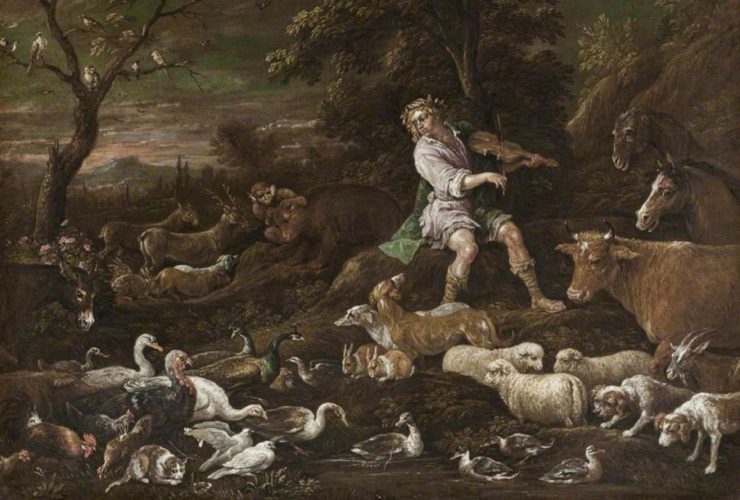If there is one lesson Tolkien intended us to take from The Lord of the Rings, it is that NPC (non-player-character) bards are extraordinarily dangerous beings. Not because they might kill you (although some might) but because by their nature, they are adept at upstaging other characters. It’s probably only due to the merciful brevity of his appearance on stage that Tom Bombadil didn’t manage to transform LOTR into Tom Bombadil Saves Middle-Earth with the Power of Verse (also there were some hobbits).
One solution is to give in to the inevitable. Give the bard centre stage and see what happens. Take these five classic novels about bards, musical mages, and others of their ilk.
John the Balladeer by Manly Wade Wellman (1988)
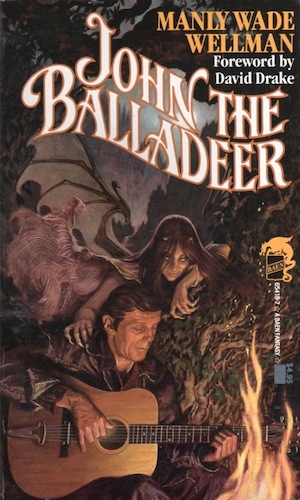
Korean War veteran Silver John left military life years ago, preferring to wander his beloved Appalachia with his silver-stringed guitar. He earns just enough from his music to make a meager living … but that’s OK. It would be a fine life, were it not for the fell beings that John the Balladeer encounters with surprising frequency.
The mountainous regime is rife with supernatural entities. Not all are malign but some are, and when they are, someone has to deal with them. More often than not, that someone is Silver John, armed with his silver-stringed guitar, white magic, and extraordinary cunning.
***
War for the Oaks by Emma Bull (1987)
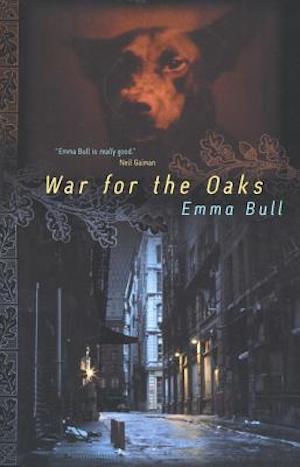
Having recently divested herself of a boyfriend whose pretty face concealed—for a time—his dud personality, Eddi McCandry no doubt intended to focus on mundane goals, like finding or assembling a new band. Getting drafted into a war between fairy courts was not on the to-do list, not least because as far as Eddi knew, fairies are the stuff of, well, fairy tales.
But the fairies believe in Eddi. They believe her music could be a powerful weapon in their ongoing struggle. The Seelie Court reaches out to recruit Eddi, deploying all the charm one might expect of entities with a shaky grasp of human nature and customs.
Somewhat against her better judgment, Eddi agrees to serve. Too bad that siding with the Seelie will earn her the enmity of the Unseelie Court and its queen—a monarch who will stop at nothing when it comes to eradicating her enemies.
***
Damiano by R. A. MacAvoy (1983)
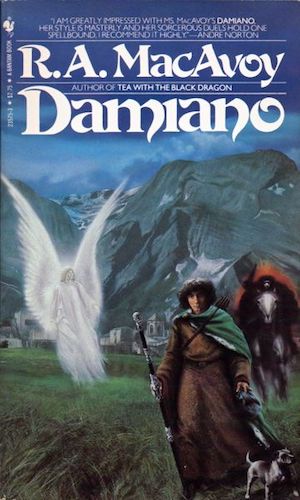
Damiano Dalstrego, a wizard’s son and an alchemist, seems a likely candidate for a dismal end. Such is the usual fate of those who dabble in the Dark Arts in this magic-rich vision of the Italian Renaissance. Damiano has somehow managed to cling to his innocence. Perhaps it is because the young musician is being mentored by Archangel Raphael.
There were a great many small wars during the Renaissance. One such threatens Damiano’s beloved city of Partestrada. Rather than abandon the city to the brutal ambitions of its neighbors, Damiano takes his lute and his talking dog on an epic quest to save Partestrada. He does not reckon the cost. He should have.
***
Born to Exile by Phyllis Eisenstein (1978)
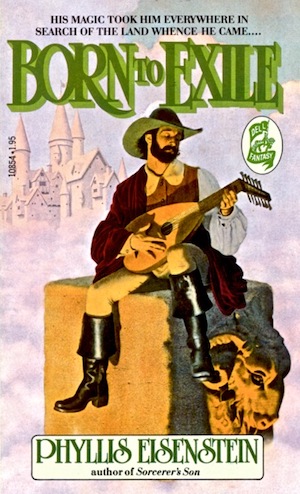
Alaric the Minstrel lives in a secondary world not unlike Medieval Europe. It is split into many pocket feudal realms and has been for as long as folks remember; there has never been a Roman empire, a Byzantine empire, even a Carolingian empire.
This myriad of principalities is a boon for Alaric. If one prince won’t be his patron, or tires of being his patron, perhaps a neighboring prince will be kinder. This would seem to involve a lot of walking—but not for Alaric. Alaric can teleport (a fact he conceals, as it would open him to charges of sorcery or demonic possession).
There may not have been any state analogous to Rome or China, but there are some folks in this world who think an empire would be a great idea, people to whom Alaric is far more closely connected than he suspects. Perhaps it was inevitable that Alaric would eventually cross paths with the cabal and be presented with a choice: join and prosper, or resist and die….
***
Davy by Edgar Pangborn (1964)
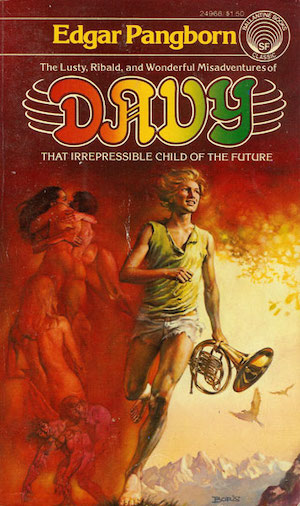
The Twenty-Minute War, and the subsequent plagues and runaway climate changes that followed, transformed the East Coast of America into a patchwork of thinly populated, technologically backward states. Our hero Davy was born to a prostitute in the Republic of Moha. He was sent to an orphanage and later told to pay the state for the cost of his raising. It would seem that he could expect nothing but a short life at hard labour.
Fate intervened. Davy saw, coveted, and absconded with a precious relic of the pre-War era, an ancient French horn. He reinvented himself as a wandering musician. Perhaps he might even dream of reforming his shattered world …
***
Perhaps even now you’re asking why I did not mention Alan Dean Foster’s Spellsinger, Greg Bear’s Songs of Earth and Power, Gael Baudino’s Gossamer Axe, or that Poul Anderson where it turned out she was dead all along. Feel free to mention your own favourites in comments.
In the words of Wikipedia editor TexasAndroid, prolific book reviewer and perennial Darwin Award nominee James Davis Nicoll is of “questionable notability.” His work has appeared in Publishers Weekly and Romantic Times as well as on his own websites, James Nicoll Reviews and Young People Read Old SFF(where he is assisted by editor Karen Lofstrom and web person Adrienne L. Travis). He is a four-time finalist for the Best Fan Writer Hugo Award and is surprisingly flammable.










